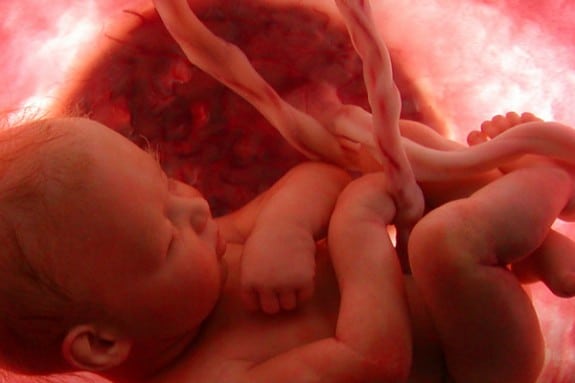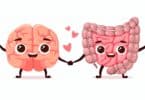While the causes of autism are still obscure (at best), science continually brings us closer to understanding this condition. Occurring in about 1 in 66 children, the prevalence is significantly higher (4-5 times) in boys than in girls. Now, a new study suggests that boys with autism are also significantly more likely to experience exposure to higher levels of hormones while in utero. Scientists say that, although it’s not a direct correlation, it may be yet another piece of the autism puzzle.
Inside the womb, babies are surrounded by amniotic fluid. This fluid contains hormones, as well as other substances that babies have passed through their urine. It is also this same fluid that is collected when a woman has an amniocentisis. Done around the fourth month of pregnancy, the test is usually conducted to tell if there might be a defect, such as Down’s Syndrome, present in the unborn baby.
Scientists in Cambridge and Copenhagen drew on Danish medical records and biobank material to collect amnio samples from 128 boys that had later been diagnosed with autism. The hormone levels of these samples were then compared to a control group, in which autism had not shown up later in life.
When comparing the amino samples of boys with autism to the control group, researchers found that the boys with autism had higher levels of four “sex steroid” hormones. These four hormones form a biological production in the body that starts with progesterone and ends with testosterone, and even the slightest fluctuation (especially for boys), could cause significant changes in brain development.
In addition to higher levels of the stress hormone, cortisol, one of the important hormones found to be higher in boys with autism was testosterone. Previous studies on animals have suggested that this particular hormone plays a major role in the shaping and development of the male brain while in utero.
“In the womb, boys produce about twice as much testosterone as girls, but compared with typical boys, the autism group has even higher levels,” Simon Baron-Cohen, director of the Autism Research Center at Cambridge University, told The Guardian. “It’s a significant difference and may have a large effect on brain development…From this study, we can’t say this is casual, but it is telling us that part of the biology of autism begins prenatally.”
Published in Molecular Psychiatry, this new study will be followed up with a test to determine if higher levels of hormones could lead to an increased risk for autism in girls. The study authors also hope to come up with some clues as to why the hormone levels inside the womb might rise in the first place. However, the researchers do not have planned to try and produce a test for autism, Asperger’s syndrome, or any other mild or related conditions.
According to researchers, the test could not be created because the results would not be consistent. While, on average, boys with autism did have higher levels of hormones in their amnio fluid, there were some boys later diagnosed with autism that did not have increased hormone levels. Likewise, there were boys with higher levels of hormones that did not end up being diagnosed with the condition. But even if there was a prenatal test that could detect autism, ethics would come into play.
“A prenatal test that is used to make a decision to terminate a pregnancy could effectively be a form of eugenics,” Baron-Cohen said. “A prenatal test that is used for early detection, with a view to starting intervention in early postnatal life may be less ethically contentious, and would need to be evaluated for its benefits. But we are a long way from that at present.”
Baron-Cohen also warned that the information from this study does not justify the use of sex hormone blocking drugs to treat autism. These drugs have already been offered, inappropriately, to people with autism, and they come with damaging side effects. Additionally, because the hormone differences are found while the child is in utero, it is unlikely that these drugs could do anything to alter the brain, since it was already shaped during pregnancy.
Related Articles:
- Scientists Develop Genetic Formula for Detecting Autism Earlier
- Comprehensive Cohort Review Shows No Link Between Autism and Vaccination
- New Research Suggests Autism Starts during Pregnancy







